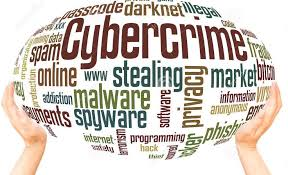Counselling a cybercrime victim can be a complex and
sensitive process, as victims may experience a range of emotional and
psychological distress. Here are some guidelines on how to provide effective
counselling to a cybercrime victim:
Establish Trust: The first step in counselling a cybercrime
victim is to establish trust. Victims may be hesitant to share personal
information or details about the crime, so it is important to create a safe and
supportive environment where they feel comfortable opening up. Reassure the
victim that everything they say will remain confidential.
Validate Their Feelings: Cybercrime victims may experience a
range of emotions, including fear, anger, frustration, and helplessness.
Acknowledge their feelings and let them know that what they are experiencing is
valid and normal. Encourage them to express their emotions in a safe and
constructive way.
Educate Them About the Crime: Cybercrime victims may not
fully understand what happened to them or how it occurred. Educate them about
the nature of the crime and the tactics used by cybercriminals. Explain the
potential consequences of the crime and the steps that can be taken to mitigate
any damage.
Help Them Develop Coping Strategies: Victims may struggle to
cope with the aftermath of a cybercrime. Help them identify coping strategies
that work for them, such as meditation, exercise, or talking to a trusted
friend or family member. Encourage them to engage in self-care activities and
to take breaks when needed.
Assist in Reporting the Crime: Victims may be hesitant to
report the crime to law enforcement, especially if they feel embarrassed or
ashamed. Explain the importance of reporting the crime and assist them in
making the report. Provide them with resources and support to help them
navigate the reporting process.
Provide Resources for Support: Cybercrime victims may
benefit from additional support, such as therapy, support groups, or legal
assistance. Provide them with resources and referrals to appropriate
professionals or organizations that can help them.
Follow Up: Follow up with the victim after counselling to
ensure that they are doing well and to offer additional support if needed. Let
them know that you are available to talk and that you care about their
well-being.
In conclusion, counselling a cybercrime victim requires a
sensitive and supportive approach. By establishing trust, validating their
feelings, educating them about the crime, helping them develop coping
strategies, assisting in reporting the crime, providing resources for support,
and following up, you can help them navigate the aftermath of the crime and
move forward with their lives.
- #CybercrimeVictimSupport
#EmpatheticCounseling- #CybercrimeAwareness
- #VictimRecovery
- #CybercrimeSurvivors
- #OnlineSafetyMatters
- #CybercrimeCounseling
- #VictimEmpowerment
- #CybercrimePrevention
- #DigitalTraumaRecovery






